US Senators Call For Change In US Policy Towards Iran
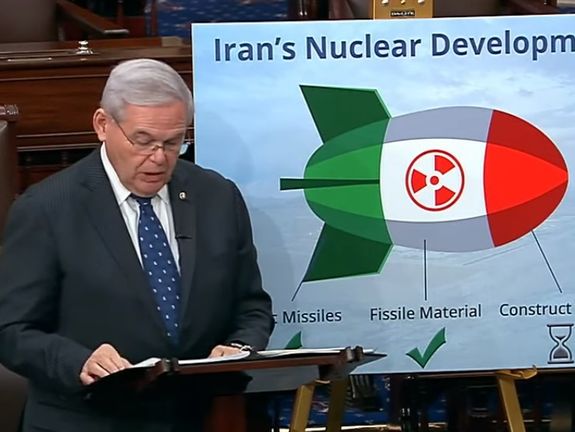
US senators are calling on the international community to take more punitive measures to weaken the Islamic regime and its influence in global conflict.

US senators are calling on the international community to take more punitive measures to weaken the Islamic regime and its influence in global conflict.
In an exclusive interview with Iran International, Senator Josh Hawley said the US and global community must do more to remove power from the Islamic regime and work more closely with opposition figures in the country.
He criticized the Biden Administration for its JCPOA policy, saying that Washington must empower its allies in the region instead of holding talks with Iran.
Hawley also expressed support for the Iranian protesters. "We want to stand with them,” he said.
Hawley is one of several US officials calling for firmer action against Iran in the wake of the breakdown of talks to revive the nuclear deal.
Following news that Tehran could be just days away from producing a nuclear bomb, Senator Bob Menendez said he hopes the Biden administration will make a strong shift in its policies towards Iran.
“The reality is the Iranians keep moving in a direction that confronts the world not only in its enrichment … but Iranian drones are part of creating death and destruction,” he said, referring to recent reports that Iranian drones are being used in the war on Ukraine.
Menendez went on to add that Iranians continue their proxy and nefarious activities in the region, including arming the Houthis in Yemen, Hezbollah in Lebanon and Hamas in Gaza.
It is time, he says, for the Biden administration to understand that no matter the level of diplomatic efforts, Iran is not changing its ways.
“There should be a clear and decisive set of actions that sends a message to the regime in Iran that there are real consequences [to their actions].”
Reporting by Arash Alaei - Washington DC
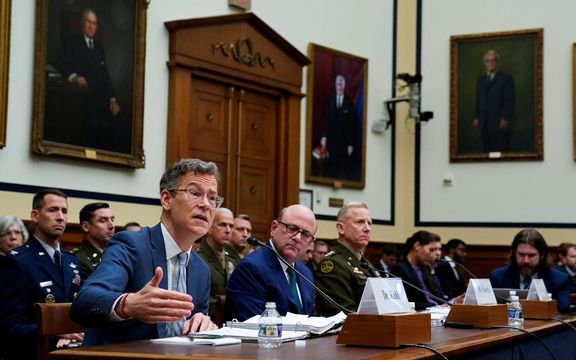
Iran can produce enough enriched uranium for one nuclear bomb in “about 12 days,” a top US official warned Tuesday as lawmakers also expressed deep concern.
Under Secretary of Defense for Policy, Colin Kahl, said: “Back in 2018, when the previous administration decided to leave the JCPOA it would have taken Iran about 12 months to produce one bomb's worth of fissile material. Now it would take about 12 days.”
It is the most alarming warning yet of the threat Iran's nuclear capabilities pose. In September, Israel’s then defense minister, Benny Gantz, told the International Atomic Energy Agency in Vienna that Iran would be able to produce enough enriched uranium to make three nuclear warheads within a few weeks.
US officials have repeatedly estimated the time it would take to acquire the fissile material for a nuclear bomb to be a matter of weeks but have not yet been as specific as Kahl was. Speaking to a House of Representatives hearing, he admitted that "Iran's nuclear progress since we left the JCPOA has been remarkable,” sending a clear warning that the Islamic republic had become a global threat.
Iran began violating the JCPOA enrichment limit set at 3.67 percent in 2019 when the Trump administration imposed full oil export sanctions but until the Biden administration came to office higher enrichment had stayed at around 5 percent.
In early 2021, Tehran toughened its position and said it would begin to enrich uranium to 20 percent purity, as the new US administration signaled its readiness to open talks to revive the JCPOA. Later Iran increased enrichment to 60 percent, which has no civilian use.
Kahl said that though the US would prefer to take the diplomatic approach to resolving the nuclear issue, it was unlikely since the recent breakdown in talks meant that “right now, the JCPOA is on ice”.
Talks to revive the JCPOA that began in April 2021 reached a deadlock last September and the administration insists it is no longer focused on reviving the accord.
The UN nuclear watchdog, the International Atomic Energy Agency (IAEA) that monitors Iran’s nuclear program was quoted Tuesday as confirming that its inspectors have found traces of uranium enriched to 84 percent – just a short step away from 90-percent enrichment needed for bomb material.
Many lawmakers from both sides of the aisle oppose lifting US economic sanctions on a country that is engaged in repression at home and “malign activities” abroad, including arming Russia with drones and possibly other weapons.
Democratic Senator Bob Menendez, Chairman of the foreign relations committee told Iran International Tuesday that the Biden administration should understand that rather than Iran changing its way, “on the contrary, it is doubling down”.
He did, however, express hope that Iran’s alarming 84-percent enrichment would bring about a shift in Biden’s policy.
Iran’s wider role in global conflict was addressed on Tuesday at a media call with Deputy Assistant Secretary of Defense Dana Stroul, who told reporters that the US and its allies are moving to treat the Islamic Republic as a "global threat”, because of its growing military alliance with Russia.
"We are now at a point where Iranian threats are no longer specific to the Middle East, but a global challenge," she said, reinforcing recent warnings by senior administration officials.
"It is reasonable to expect that the tactics, techniques and procedures that the Iranians are learning and perfecting in Ukraine will one day come back to our partners in the Middle East, which is why we are increasing cooperation now, intelligence sharing, understanding these networks and increasing our collective defensive capabilities so that we are prepared to counter these threats in the region," she added.

The UN nuclear watchdog is in discussions with Iran on the origin of uranium particles enriched to up to 83.7%, a report by agency confirmed on Tuesday.
The report seen by Reuters is the first official indication by the International Atomic Energy Agency (IAEA) that indeed Iran’s high level of enrichment, very close to weapons grade is true.
"Iran informed the Agency that 'unintended fluctuations in enrichment levels may have occurred during transition period at the time of commissioning the process of [60%] product (November 2022) or while replacing the feed cylinder'. Discussions between the Agency and Iran to clarify the matter are ongoing," the confidential International Atomic Energy Agency report said.
Bloomberg reported on February 19 that IAEA inspectors had come across uranium particles enriched to 84 percent, but the agency had not confirmed or denied the report since then.
Bloomberg said that the IAEA needed to determine whether the higher-grade enrichment was intentional or the result of unintended technical processes. Earlier in February, inspectors had found an unusual set-up in interconnections of enrichment machines, called centrifuges.
The spokesman for the Atomic Energy Organization of Iran immediately rejected Bloomberg's report as "distortion of facts" and said, "We have not enriched uranium to purity levels above 60 percent so far." He added that the IAEA has informed Tehran that "the presence of uranium particles with above 60-percent purity is common in sampling."
However, this week Iranian officials began to argue that such unintended higher-level enrichment sometimes happens in the fast-spinning centrifuge machines.
Iran’s Nuclear Agency Spokesman Behrouz Kamalvandi said on Friday [Feb 24] that finding highly-enriched uranium particles in the pipes connecting centrifuges was a “normal issue.”
“For example, we are producing 5 percent enriched [uranium], 11 percent particle is seen in it, or we are producing 20 percent [enriched uranium], 47 percent particle is seen in it. We had several correspondences about this in the past… it’s a natural thing in enrichment,” he noted.
“The machine is spinning fast. If the amount of the feed decreases for a moment, the enrichment will increase by a few percent; but it doesn’t matter because the end product is what matters.”
Iranian officials also said that they expect IAEA inspectors and possible its director Rafael Grossi to travel to Tehran, but did not specify that any visit would be related to the highly enriched particles.
In the past two years, the Islamic Republic has reduced IAEA’s monitoring access to its nuclear installations and has violated limits set by the 2015 nuclear accord (JCPOA) with world powers that kept enrichment at 3.67 percent. Tehran began violating the limit in 2019, when the US imposed full oil export sanctions after withdrawing from the JCPOA.
Nearly two years of diplomatic attempts to restore the deal have failed, with the West also becoming critical of Iran’s bloody crackdown on popular protests and its supply of military drones to Russia.
Any of the three European signatories of the JCPOA, the United Kingdom, France or Germany could trigger a UN Security Council mechanism enshrined in the agreement, to reinstate international sanctions on Iran for its enrichment violations.
The IAEA Board of Governors will have its next meeting on March 6 and a report on Iran will be discussed. If the new violation is presented at the meeting, Western countries may decide to take the issue to the Security Council.
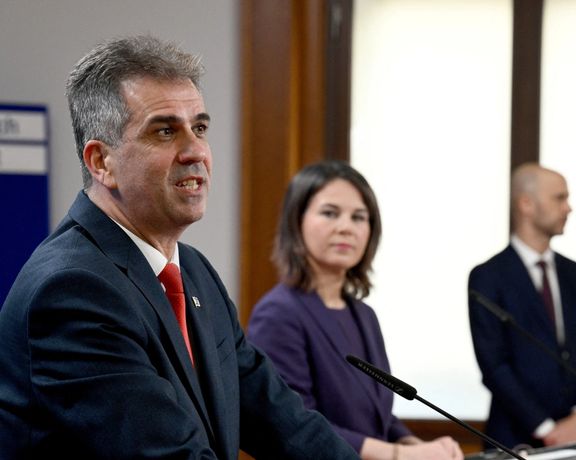
Israeli Foreign Minister Eli Cohen says there are only two ways to prevent an Iranian nuclear weapon: Going back to sanctions or have a credible military option.
Cohen made the remarks on Tuesday during a joint press conference with his German counterpart Annalena Baerbock in Berlin.
“The fingerprints of Iran state terrorism can be seen in the case of Ukraine. The Iranian regime is no longer just a regional problem but also a problem to Europe and today to the world,” stressed Cohen.
He went on to say that the international community cannot ever accept a nuclear Iran and Tehran must be forced to return to full compliance with international law and the and its nuclear obligations, including cooperation with the UN watchdog, the International Atomic Eneergy Agency.
“This is the time…. This is the time to take steps. This is the time to do actions to prevent Iran to achieve a nuclear weapon,” added Cohen.
Elsewhere in his statements, Cohen called on Germany to designate Iran’s Revolutionary Guard as a terror organization and extend the designation to all Europe.
“Iran is like a cancer. It finances Hamas, the Jihad, and Hezbollah. A few days ago, the anti-Semitic Iranian regime imposed sanctions on German Jewish leaders and local organization. Israelis and Germans need to fight this together.”
For her part, Germany’s Baerbock said any nuclear escalation by Iran would be "devastating for the whole region".
She said Germany and Israel have a shared concern over reports Iran was enriching uranium to 84 per cent.
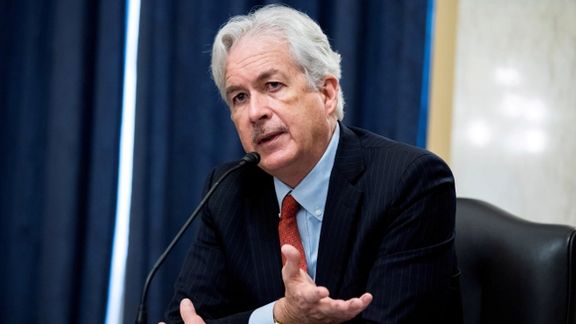
Russia is proposing to help Iran on its missile program, CIA Director William Burns told CBS Sunday, while Tehran’s uranium enrichment program is far advanced.
In an interview on Face the Nation, Burns told Margaret Brennan that Iran’s military ties with Russia is “moving at a pretty fast clip in a very dangerous direction right now…”
At the same time, he said despite Iran’s uranium enrichment program which has advanced far and can produce bomb material in a matter of weeks, the United States believes a decision to produce nuclear weapons has not been made yet.
Manufacturing a bomb can be a more secretive process in comparison with enrichment, which the UN’s International Atomic Energy Agency (IAEA) is somewhat monitoring inside the country. While the enrichment installations are being monitored, the bomb-making process can take place in a completely separate and secret location.
The United States believes that Iran stopped its nascent weaponization program in 2003 when news about its secret nuclear program became public and Western powers began exerting pressure on Tehran.
“To the best of our knowledge, we don't believe that the Supreme Leader in Iran has yet made a decision to resume the weaponization program that we judge that they suspended or stopped at the end of 2003,” Burns said during the interview.
Iran began breaching an enrichment limit imposed by the Obama era JCPOA accord after the Trump administration imposed full oil export sanctions in 2019. First, Tehran began enriching to 5 percent, beyond the agreement’s 3.67-percent limit, but when the Biden administration signaled its readiness to revive the deal, Iran announced enrichment to 20 percent in early 2021.
As negotiations were taking place in Vienna that year, Iran increased enrichment to 60 percent, which is very close to the 90-percent purity needed for nuclear weapons.
This month Bloomberg reported that IAEA inspectors found 84-percent enriched uranium particles in an Iranian nuclear facility. The UN watchdog has not denied the report, while Tehran has said that unintentional over-enrichment can sometimes happen in the fast-spinning centrifuges.
Burns also warned that the close military ties between Moscow and Tehran can pose a threat not only to Ukraine but also to regional countries. Iran has already provided hundreds of Kamikaze drones that Russia has used against Ukraine. Burns revealed that Iran has also provided Russia with ammunition for artillery and tanks.
“Russia is proposing to help the Iranians on their missile program and also at least considering the possibility of providing fighter aircraft to Iran as well,” the CIA director said.
Iran already has medium-range missiles that could be modified to carry nuclear warheads but any Russian assistance in this regard could be extremely dangerous for the region and possibly beyond.
Israel has vowed that it will not tolerate a nuclear Iran and is preparing to use military force if needed to neutralize its nuclear program.
US officials have also been increasingly signaling that President Joe Biden will not tolerate a nuclear Iran, after JCPOA talks hit a dead-end in September. "If they start getting too close, too close for comfort, then of course we will not be prepared to sit idly by," US Special Representative for Iran Robert Malley told National Public Radio in November.
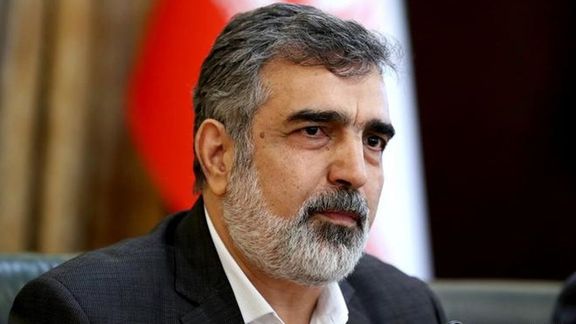
Iranian state television has offered a defense against an accusation attributed to International Atomic Agency Organization inspectors that it enriched uranium to 84% purity.
An Iranian official implicitly accepted the accusation, telling state television's English-language arm, Press TV that the allegation is a part of a “conspiracy” against Tehran amid tensions over its nuclear program.
Iran’s Nuclear Agency Spokesman Behrouz Kamalvandi said on Friday that finding highly-enriched uranium particles in the pipes connecting centrifuges was a “normal issue.”
“For example, we are producing 5 percent enriched [uranium], 11 percent particle is seen in it, or we are producing 20 percent [enriched uranium], 47 percent particle is seen in it. We had several correspondences about this in the past… it’s a natural thing in enrichment,” he noted.
“The machine is spinning fast. If the amount of the feed decreases for a moment, the enrichment will increase by a few percent; but it doesn’t matter because the end product is what matters.”
The allegation international inspectors found 84% enriched uranium threatens to further escalate tensions between Iran and the West. Should the claim be true, it would put the clerical regime closer than ever to weapons-grade material.
Iran now produces uranium enriched to 60% purity. Any accusation of enrichment higher than that further ratchets up tension over the program.
Israeli Prime Minister Benjamin Netanyahu has already threatened to take military action similar to when Israel previously bombed nuclear programs in Iraq and Syria.